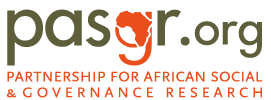Contact Info
- 6th Floor, I & M Building 2nd Ngong Avenue, Upper Hill
- +254 (0)20 2985000; +254 (0)729 111031 / +254 (0)731 000065
- info@pasgr.org
- Office Hrs: Today 9.00am to 6.00pm
As a result of the COVID-19 pandemic, many institutions of higher learning in Sub Saharan Africa (SSA) now offer online and blended learning options for their students – in addition to in-person engagement in lecture rooms. However, the sudden change in delivery mode has occurred with little time for higher education stakeholders (students, faculty, rectors, presidents of higher education institutions, including policy makers) to plan, acquire the necessary technology, improve their information and communications technology, digital, or social media skills, and most importantly, develop and adapt Quality Assurance (QA) regulations.
Teaching and learning gaps have widened significantly, according to findings from recent collaborative studies, programmatic interventions, and stakeholder engagements facilitated by the Partnership for African Social and Governance Research (PASGR) and Education Sub Saharan Africa (ESSA). Since there are not robust QA systems in place in many of the higher education institutions (HEIs) in SSA, the change in mode of teaching and learning has largely come at the expense of quality.

Recognising the significance of quality assurance in higher education in SSA, PASGR in collaboration with ESSA hosted their first webinar on the theme “Quality Assuring Online Teaching and Learning in Higher Education Institutions”. The webinar aimed to share lessons learned from recent joint studies, programmatic interventions, and stakeholder engagements that ESSA and PASGR spearheaded in collaboration with other African partners on impacts of the COVID-19 epidemic on HEIs in SSA. Specifically, the webinar sought to; take stock of the current state of QA systems in SSA in relation to what is happening globally, to gain a broader perspective of changes across countries within and outside SSA; share thoughts on emerging trends and practices for improving the QA system in SSA and beyond; encourage evidence-based discussions among stakeholders; and discuss current policies, programmes, and innovative actions to assist educators and practitioners in leading learning recovery initiatives in SSA and for potential benefit beyond the region.
The forum began with remarks from Executive Directors of the two organisations, Dr Anthony Mveyange of PASGR and Dr Lucy Heady of ESSA. Both highlighted the importance of evidence in informing practical action by universities in overcoming the challenges brought about by the pandemic.
Dr Pauline Essah, Director of Research and Insight at ESSA, set the scene by highlighting the webinar series topics PASGR in collaboration with ESSA are organising focusing on COVID-19. She highlighted some of the topics to be covered in the upcoming webinars such as; how to ensure inclusion and inclusivity in HE in SSA; institutional support and capacity strengthening in HE institutions in SSA; and how to create opportunities for HEIs in SSA to collaborate more at the national, regional and international levels.
During the webinar, Samuel Agyapong ESSA’s Evidence, Impact and Learning Manager presented on the effects of COVID-19 on quality assurance within higher education institutions in sub-Saharan Africa. Some of the research findings by ESSA indicated that 39% of private and 18% public higher education institutions were able to immediately transition to online learning during the COVID-19 pandemic. However, there was a general lack of digital and virtual infrastructure and delayed adoption of technology-supported solutions for online learning and assessment. In addition, the research also concluded; lack of clear guidance on how to conduct online learning and assessment; and a general concern about the integrity of online exams among students and faculty.

The International Association of Universities (IAU[IK1] ) conducted research that provided a global picture beyond SSA. Trine Jensen, Manager, Higher Education and Digital Transformation at IAU emphasised that, “The pandemic impacted the quality of teaching and learning and for that reason it is important to draw lessons learnt during the pandemic to take informed decision about the way forward.” In addition, she highlighted that in order to move forward, there is need to apply lessons learnt towards enhancing the online/blended mode of delivery, and to continue developing capacities for online and blended models of learning; and to implement, review, adapt quality assurance mechanism.
Dr Pauline Ngimwa, Programme Manager, Professional Development and Training (PDT) at PASGR, moderated a panel session in which two panelists reflected on their experiences and lessons learned for national and regional policy recommendations that will ensure quality e-learning practices at African Higher Education and reduce loss of quality learning, among other things.
“There is need to adopt the blended learning approach and take on the constant transformation on of higher education systems.” said Dr Violet Makuku of the Association of African Universities (AAU). In support, Dr Hardson Kwandanyi, Director, Academic and Institutional Audits at the Zimbabwe Council for Higher Education (ZIMCHE) added that, “content quality, objective alignment, design of accessible and structured content and mode of feedback are key factors to consider in order to achieve quality online learning.”
During his closing remarks, Dr Martin Atela, the Programme Manager, Research and Policy Programme at PASGR, stated, “We need to have a conversation around the future of HEIs in the continent.” He added that, “lessons from studies suggest that HEIs need to be agile to navigate the challenges of disruptive pandemics like COVID-19. Adapt or perish!”
Watch the entire webinar below:
A4EA AAU advanced research design African universities agriculture Applied Quantitative Methods APSP ARD CABE call for applications cash transfers COVID-19 employment energy EOI Featured higher education IDS INCLUDE Job opportunity LEAP Africa MMRC MRPP opportunities opportunity PAMOJA TRUST partnerships PASGR PDT pedagogy PedaL press release professional development and training professional training public policy Research research methods scholarships social protection Social sciences University of Ibadan University of Pretoria utafiti sera vacancy Youth employment

6th Floor, I & M Building
2nd Ngong Avenue, Upper Hill
P.O. Box 76418-00508
Nairobi, Kenya
Email: info@pasgr.org
Tel: +254 (0)20 2985000;
+254 (0)729 111031 / +254 (0)731 000065
Legal counsel provided by Hurwit & Associates and Muthoga Gaturu & Co. Advocates
